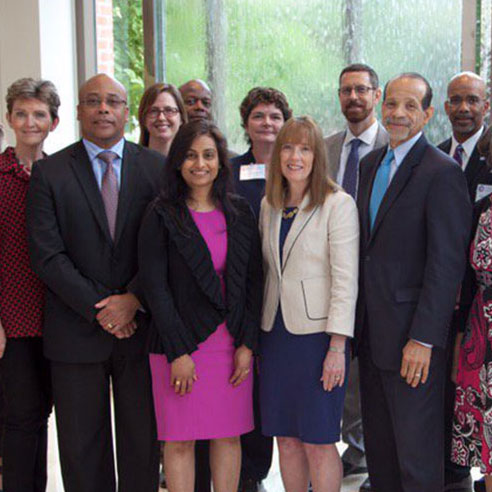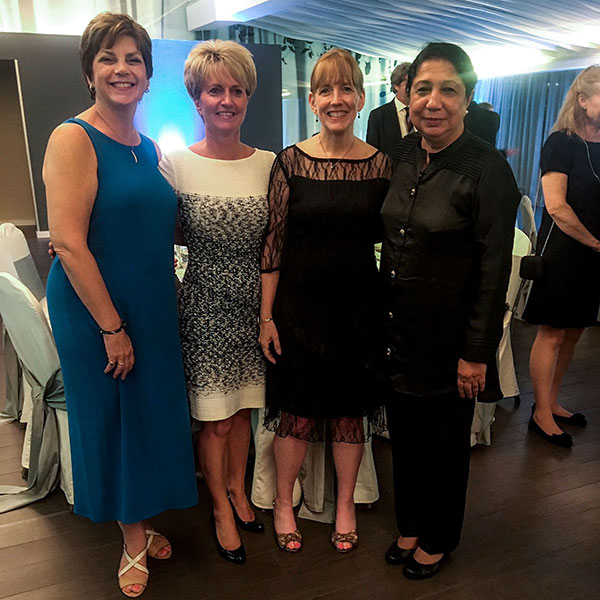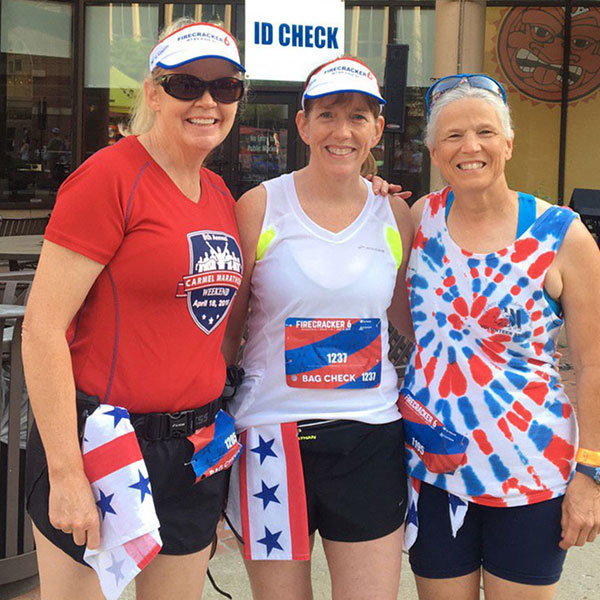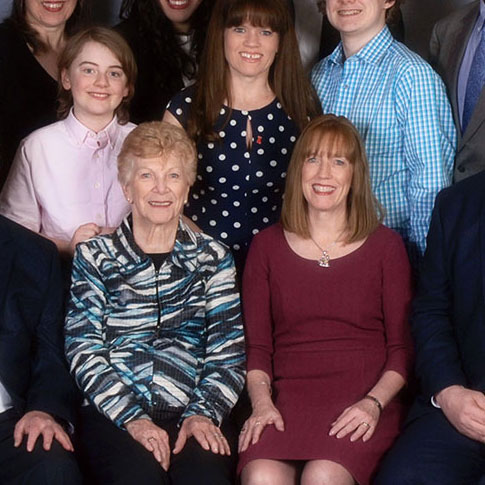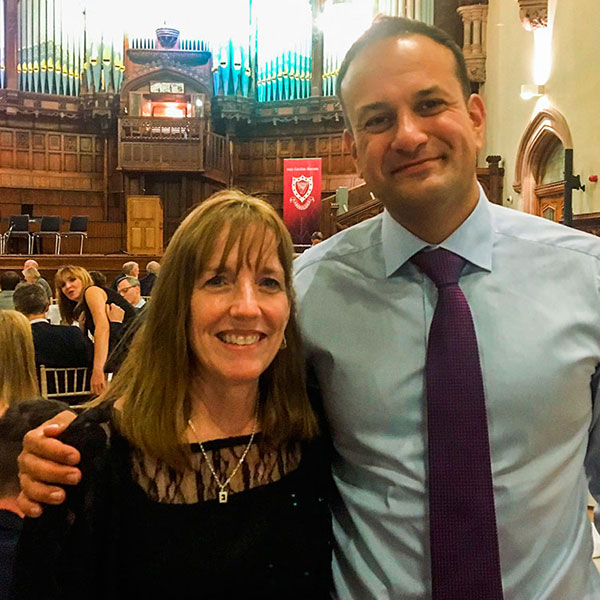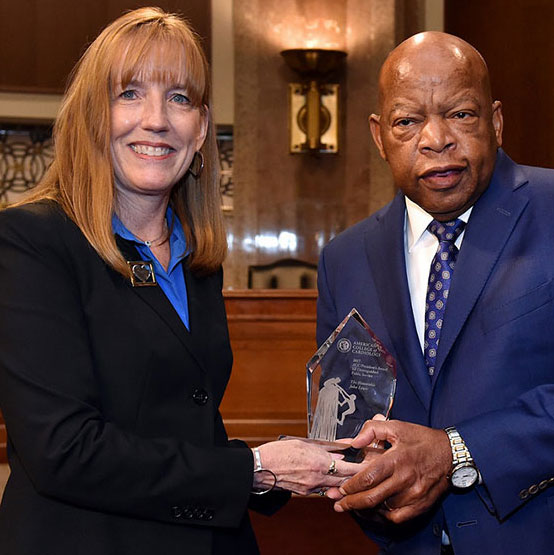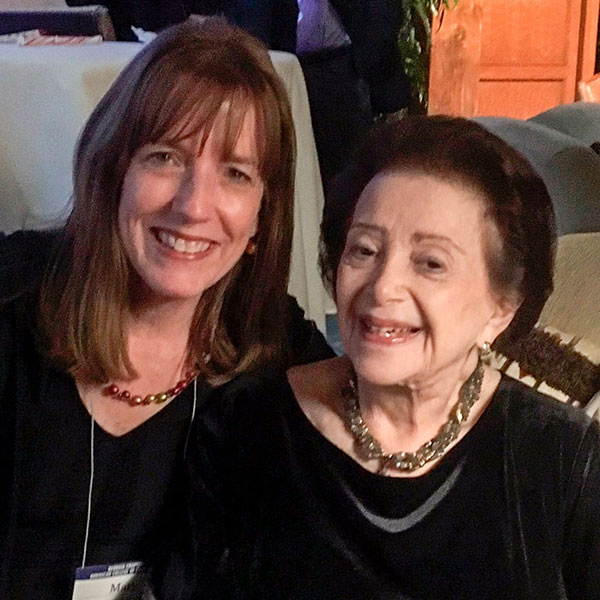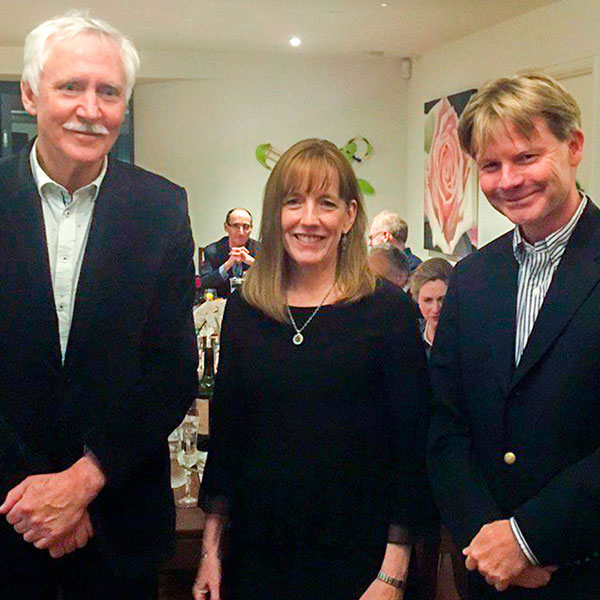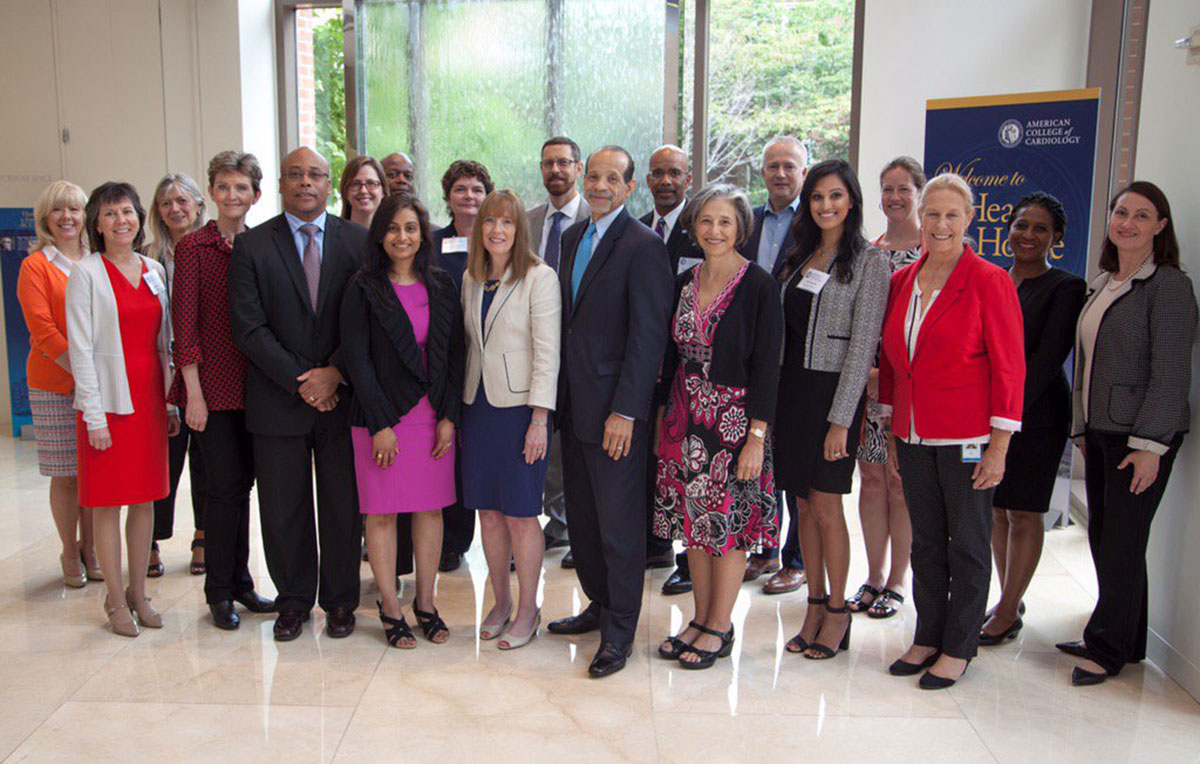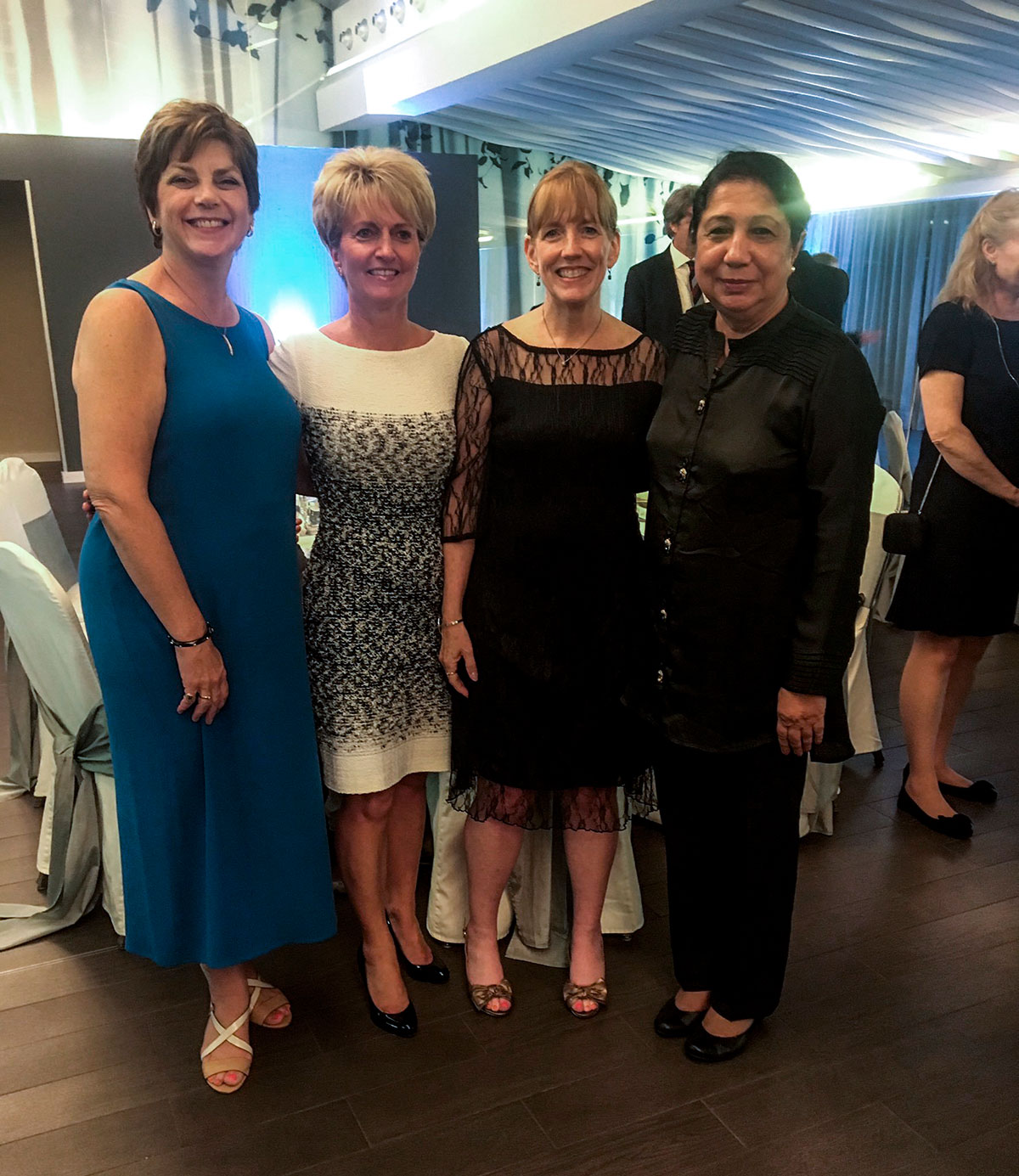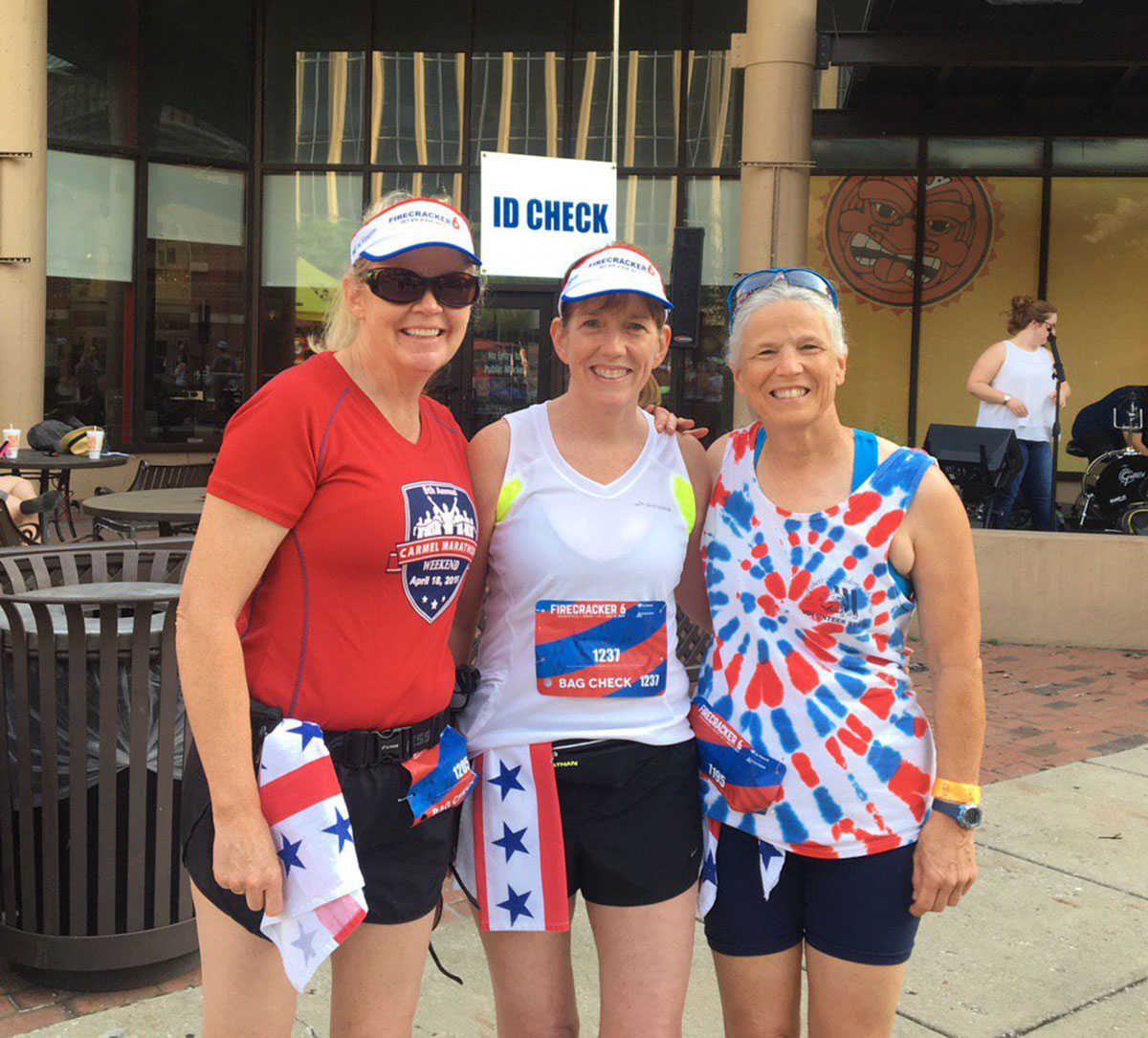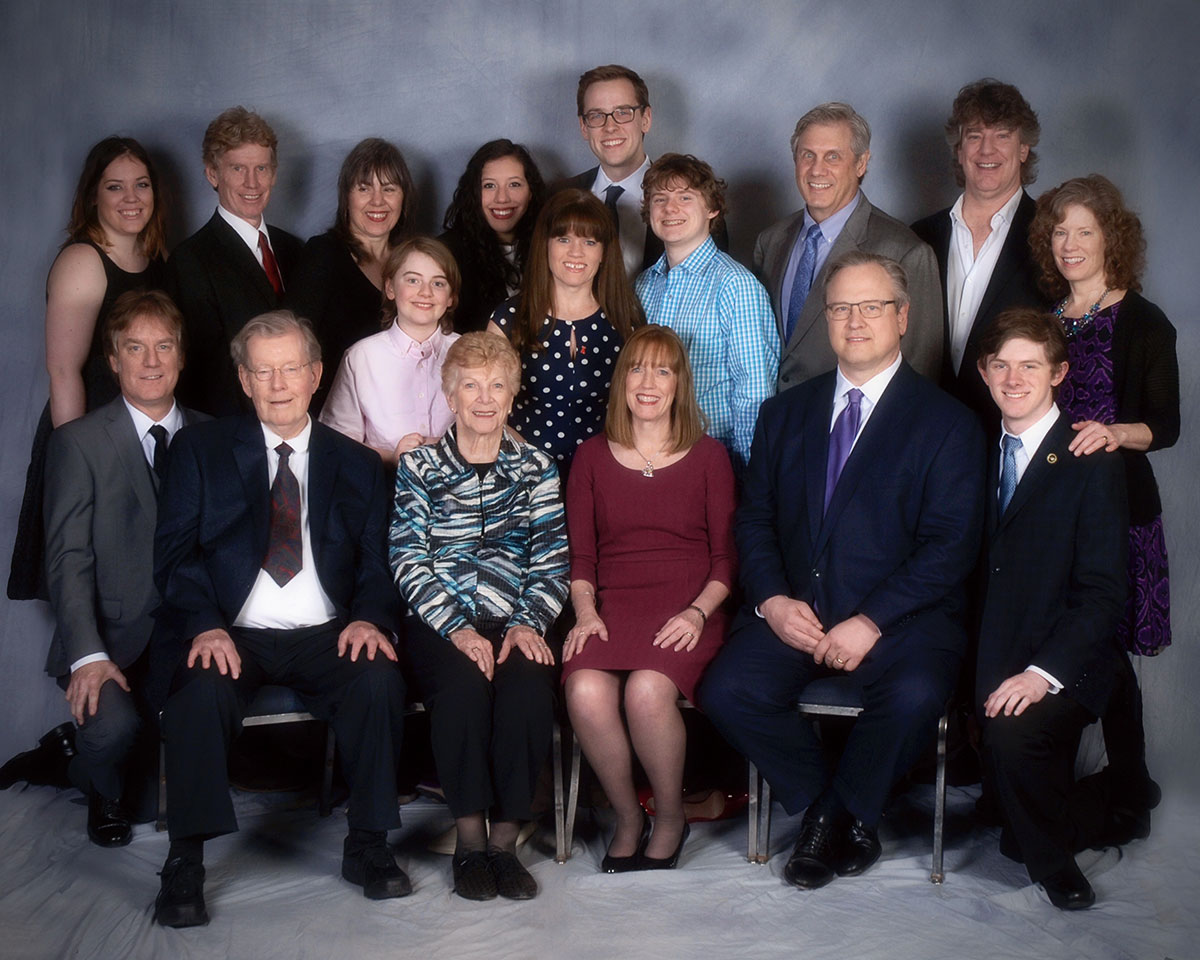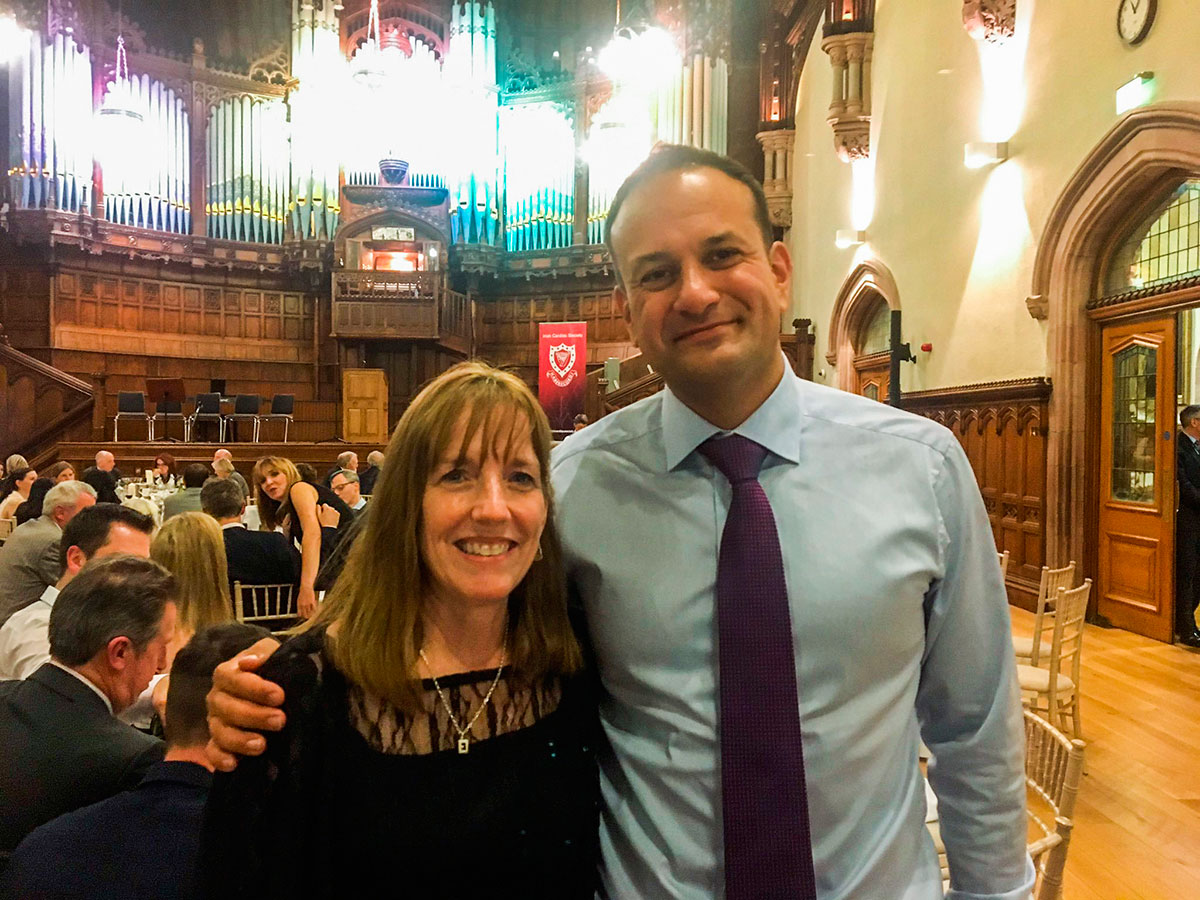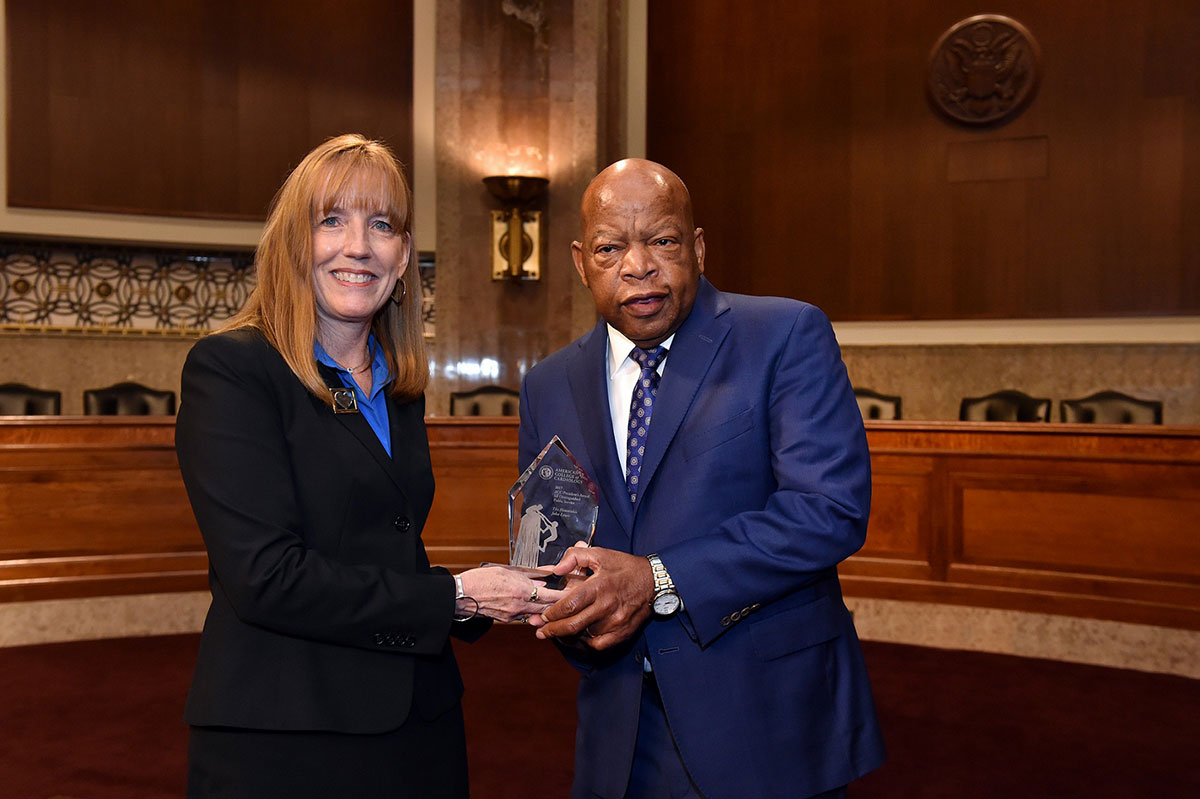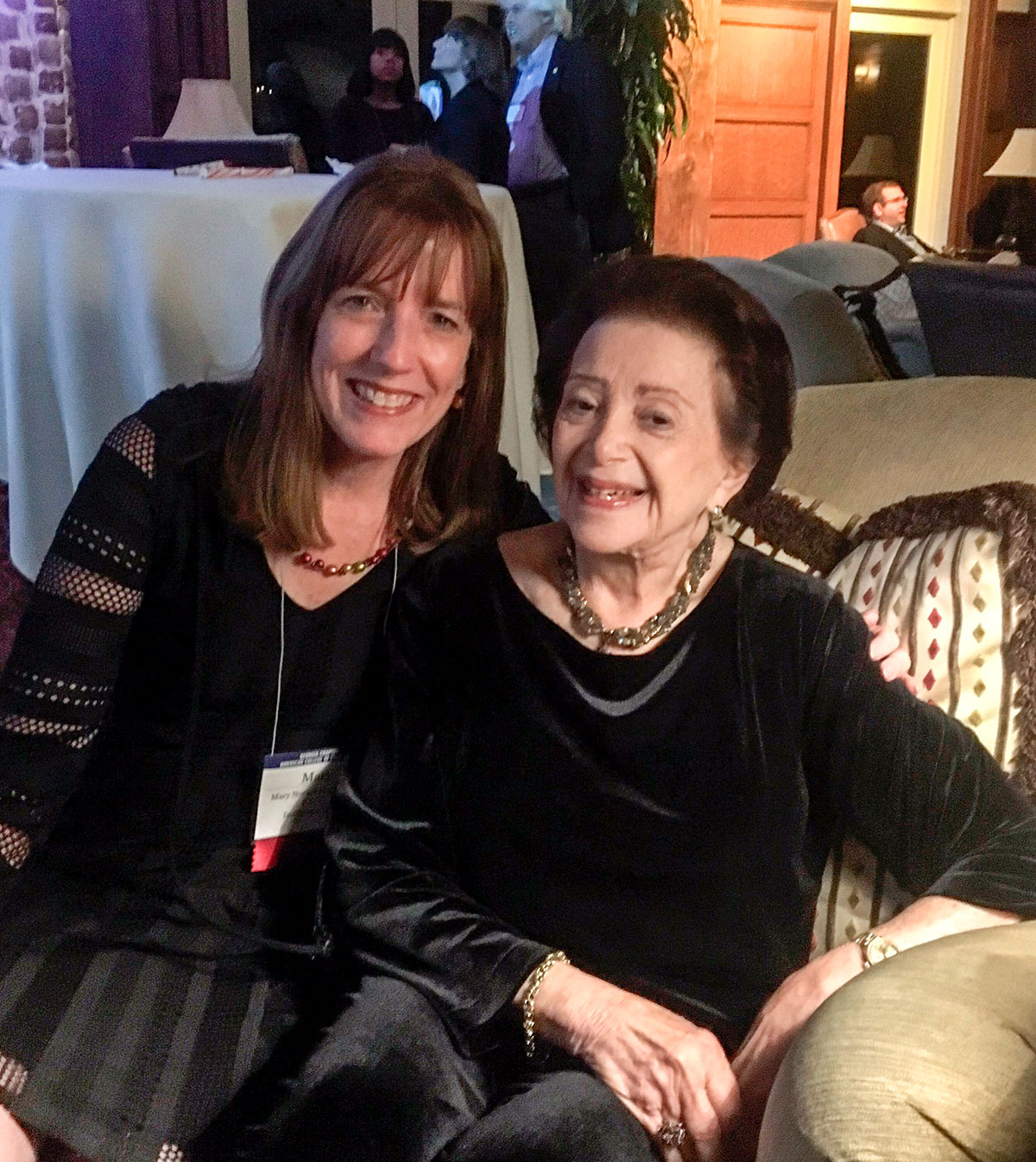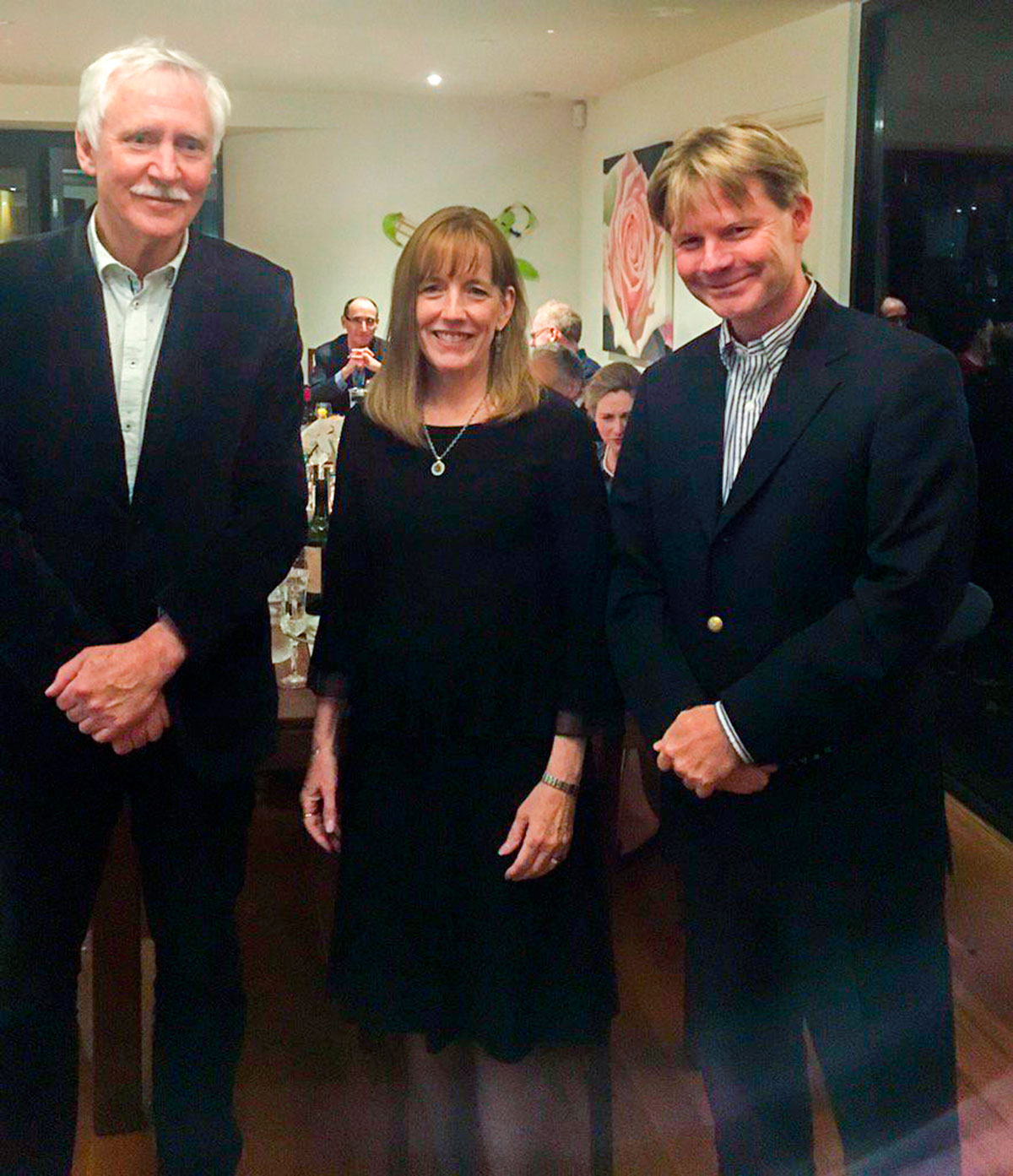Get To Know Your Leaders | ACC Presidential Year in Review
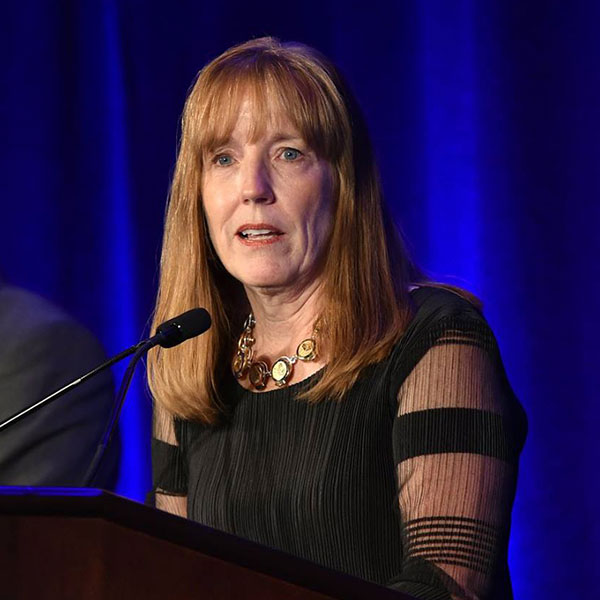
As her presidential year nears its close, Mary Norine Walsh, MD, FACC, talked with Cardiology about the strengths of the College, accomplishments and advice for future leaders. At ACC.18, during Convocation, Walsh passes on the Presidential Chain to C. Michael Valentine, MD, FACC.
What do you view as the College’s greatest strengths over the past year?
The College and its members have done an amazing job of integrating our new governance principles into the work of committees and task forces. The Board of Trustees (BOT) has become quite nimble and has made efforts to appropriately delegate decision making to committees while keeping a strategic focus on what will help the College move forward and continue to innovate. Leaders of committees, task forces and other groups have become accustomed to this new model and have upped their game in taking on new responsibility and making crucial recommendations for the College’s activities and future directions.
While the ACC is steered by its Strategic Plan and directed by strategic goals, you brought a focus to a few areas of passion that have been a common thread throughout your career: the need for team-based care, lack of women in cardiology, and importance of advocacy. How have you and the ACC led efforts in these areas?
While these areas of focus have been ones I’ve been vocal about, each one is also a strategic direction of the College. Team-based care has become a sine qua non of excellence in cardiovascular care, in no small part because of economic and regulatory imperatives. The College’s Cardiovascular (CV) Team Council and Section have continued to lead the College in putting forth recommendations for team-based care models and making sure that the expertise of all the various team members is integrated into all College efforts. The Membership Committee and the BOT Task Force on Future CV Teams and Business and Management Practice of the Future have had a focus on this, too.
The College has moved forward dramatically this year in its efforts to analyze the issues surrounding the low numbers of women and other under-represented groups in cardiology. The establishment of the College’s Task Force on Diversity has representatives from a wide number of groups, including some who serve as their institution’s diversity officer. The expertise of this group is invaluable and has put forward to the Board several very concrete recommendations and performance metrics that should help move the needle on increasing the numbers from these under-represented groups and help develop their leadership skills and encourage their involvement in the College.
"I am not shy about sharing the fact that I had to throw my name in the hat more than once for several College leadership positions, including the vice presidency, before I succeeded… You must be persistent to attain your goals and look for other leadership opportunities along the way."
I think the importance of advocacy to the College is clear. The Health Affairs Committee and our outstanding advocacy staff work together all year long keeping an ear to the ground on national and state issues and are nimble in putting out Action Alerts to our members when necessary. I’ve personally learned a great deal this year about how an organization like the College can use its political capital to weigh in on issues that are important to our members and our patients. Reacting prematurely to proposed legislation rather than “keeping our powder dry” until the opportune moment is a learned skill and I appreciate the tutorials I’ve have had this year from our incredibly skilled staff and knowledgeable members.
The year as ACC president is a busy one. In the whirlwind of activity this past year, does a single event or moment stand out as being particularly meaningful?
The opportunities that I’ve had this year have been phenomenal. I’ve been privileged to travel the world representing the College and meet the leaders of other national cardiovascular societies and to learn how cardiovascular health care is delivered around the world. But two moments that stand out both happened in Washington, DC. My parents and all five of my brothers and sisters and their families, along with my husband and children joined me at the convocation at ACC.17 when I became president of the College. Having all the people there who have supported me in my journey for so many years was deeply moving.
"The opportunities that I’ve had this year have been phenomenal. I’ve been privileged to travel the world representing the College and meet the leaders of other national cardiovascular societies and to learn how cardiovascular health care is delivered around the world."
The other moment was when I had the privilege of presenting Representative John Lewis (D-GA) with the 2017 President’s Award for Distinguished Service at the Legislative Conference. Introducing him and detailing his role as a leader in the civil rights movement, including being a member of the “Big Six” leaders who organized the 1963 March on Washington and spearheading the march for voting rights across the Edmund Pettus Bridge in Selma, AL, with him standing right next to me was very powerful.
Leadership in the College happens at many levels – not just at the presidency. What advice do you have for future ACC leaders?
My most emphatic piece of advice to all is: you can’t win if you don’t play. Many make the erroneous assumption that leadership roles are assigned when others recognize the leadership potential of a given person. This talent recognition plays a role, of course, as does encouragement from others. But you will never attain a leadership role unless you indicate strong interest in assuming the role and advocating for yourself by stating your qualifications for that role or position. People are sometimes reluctant to advocate for themselves in this way.
A corollary to this advice is: if you put yourself forth for a leadership position and are not selected, don’t give up! Make sure that you are first in line when that position, or another like it, opens up in the future. I am not shy about sharing the fact that I had to throw my name in the hat more than once for several College leadership positions, including the vice presidency, before I succeeded. The breadth and depth of talent in our College membership, makes it a very competitive field from a leadership standpoint. You must be persistent to attain your goals and look for other leadership opportunities along the way.
What is your hope for the future of the ACC?
The ACC, at its roots, is a professional membership organization. And over the years, it has grown from an organization whose members are American cardiologists, to an international organization whose members include cardiologists from countries all over the world, as well as nurses, pharmacologists, nurse practitioners, physician assistants, technologists and many others whose primary profession is the care of patients who have or are at risk for cardiovascular disease.
"When I reflect on my involvement in the College, I recognize that my original involvement and activity was as a side gig to my life as a practicing cardiologist, teacher and researcher. For me, my side gig turned into a major part of my professional life."
We have seen a great evolution in our membership throughout the past decade or so, but we are still fragmented into interest groups and fiefdoms. I hope in the future we will sunset the terms such as domestic member, CV Team member, FIT member, international member, etc. When that happens, and all members are simply called members, it will be a signal that we have evolved as an organization that considers the needs and concerns of all its members regardless of their geographic location or practice type.
As you pass on the presidential baton, what parting piece of wisdom would you like to share with ACC members?
I recently came upon an article that gave advice about career resolutions. The author recommended five things and one of them was start a side gig. I was struck by this recommendation and shared it on Twitter, adding in the discussion that ensued that working in nonprofits counts. When I reflect on my involvement in the College, I recognize that my original involvement and activity was as a side gig to my life as a practicing cardiologist, teacher and researcher. For me, my side gig turned into a major part of my professional life. I hope that others will keep investing their time and talents in the College. It is the best side gig imaginable.
Clinical Topics: Cardiovascular Care Team
Keywords: ACC Publications, Cardiology Magazine, ACC18, ACC Annual Scientific Session, Awards and Prizes, Cardiovascular Diseases, Civil Rights, Committee Membership, Decision Making, District of Columbia, Goals, Leadership, Needles, Nurse Practitioners, Organizations, Organizations, Nonprofit, Parents, Physician Assistants, Public Opinion, Research Personnel, Siblings, Societies, Spouses, Thinking, Trustees
< Back to Listings


